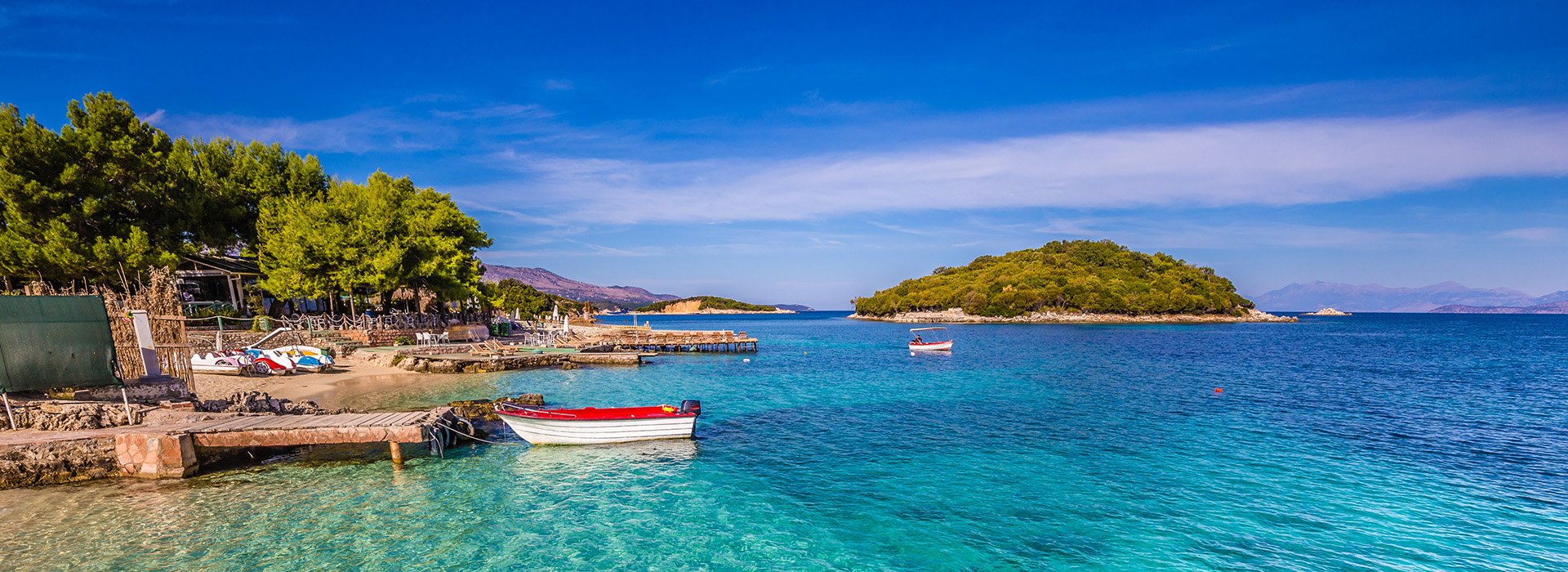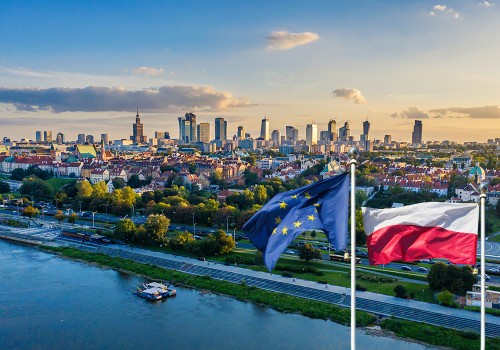On the Ramp in Pristina with Behare Hallaqi
“Whatever service or request needs to be arranged, gets done.” This simple response characterizes Behare Hallaqi’s approach to her role as Euro Jet’s Country Manager for Kosovo and Albania. In our interview, she talks about her charter broker career and why the transition to ground support was a move she does not regret. She provides an interesting overview of the most important things to know about business aviation in Kosovo and Albania and introduces her team in both Pristina and Tirana. Behare also explains that the reputation of the two countries as unsafe destinations is an outdated one and gives several good reasons for why you should include them in your next trip.
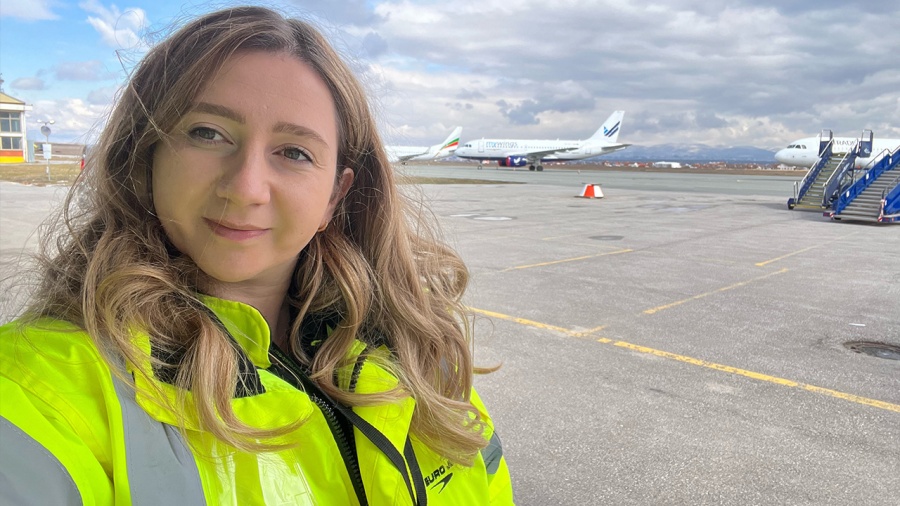
Behare, you were one of the first charter brokers in Kosovo back when this part of the private aviation industry was just starting in your country. What brought you into this business?
My aviation career began right after graduating from RIT Kosovo (Rochester Institute of Technology), which is an American college here in Pristina. While I completed part of our mandatory internships working in different financial sectors, I came across an opportunity to work as an aircraft charter broker for a Dubai-based company which was opening a branch here in Kosovo.
Together with my manager, we started developing the local and international bizjet charter market and introduced our services, which were a completely new product here. After careful analysis, we decided to focus on selling air ambulance services, offering our customers an option to obtain better medical care in other countries such as Turkey, Italy, and Germany. I enjoyed my work very much, got to speak English daily and develop my business strategy and sales skills. Most importantly, I got to know business jet operators, their product, way of working, service requirements, and identified how we could work together. We started receiving requests from the neighboring countries, then from the Middle East, and soon we were able to expand our services globally.
That sounds like a very successful business. What made you then transition to Euro Jet and to the ground support side of the flight operation?
After working for five years as a charter broker, I knew that aviation would be my professional path forward. But as a broker, I facilitated the sale of aircraft for a particular flight or customer after which the operator took care of the rest, and I never even needed to go to the airport! I started to be more interested in the operational side of aviation, especially after one memorable trip with Fehmi Mustafa, Euro Jet’s long-time Ground Service Coordinator at Pristina Airport.
We had an air ambulance flight from Pristina to Istanbul which needed extensive attention, and it was crucial for me to know what was happening on the ramp. The operator forwarded me the contact to Fehmi who promised to arrange all services needed, and personally make sure everything would go smoothly. The flight was a success and the work Fehmi did for us sparked my interest. So much so that the day after this flight had taken place, I sent my CV to Euro Jet’s HR department and within two hours, I got a call back!
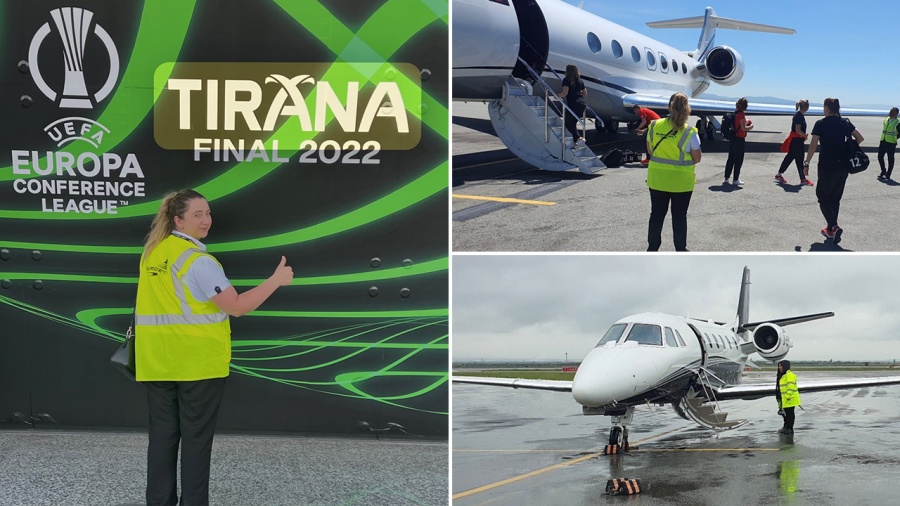
And you were hired! How did you settle into the role of a Country Manager?
Thanks to my previous job, I was already well connected with both the operators as well as the airport. But while I knew how things needed to be done, I did not have the hands-on ramp experience. After I was hired, my training first started in Prague at Euro Jet’s headquarters and then continued with Fehmi at Pristina Airport.
At first, it was challenging, but over the seven years that I have held the position of Country Manager at Euro Jet, I never looked back. I find the operational side – the cooperation with the operators and crew at the airport – so much more fulfilling.
You are responsible for Euro Jet’s operations in both Kosovo and Albania. What does your job entail and how do you manage both countries?
At first, I was only assigned Kosovo, but since the two countries have very close relations and speak the same language, I then also took up Albania. I keep track of airport updates, focus on improving our service and fixing any issues that might arise, and also work on the ramp. When there is a summit or a festival and it is all hands-on deck, I am on the ramp.
Whatever service or request needs to be arranged, gets done.
I am based out of Pristina but I make sure to visit Albania regularly. What allows me to manage both countries without any problems, is the good relationship I have with my whole team.
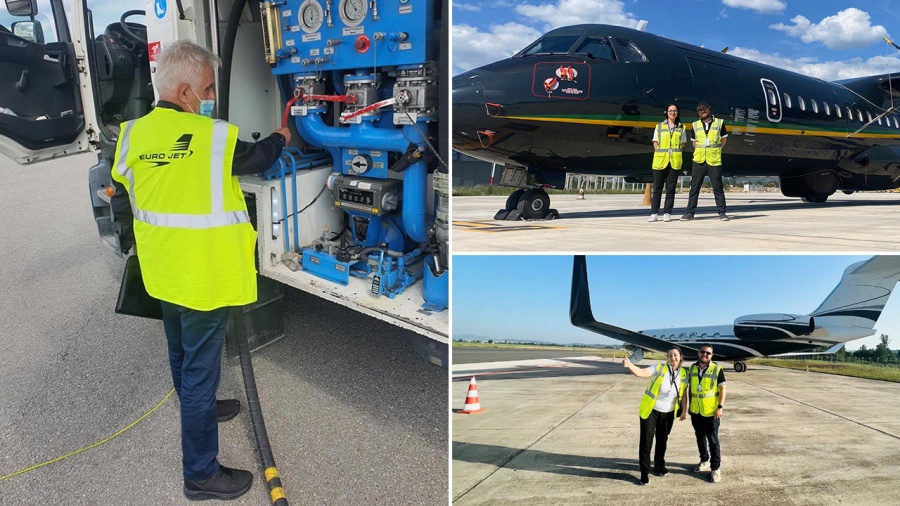
Could you please introduce your colleagues?
At Pristina Airport (BKPR/PRN), we have Fehmi Mustafa who has worked at the airport for decades and has been with Euro Jet since the beginning. He knows everybody and everyone knows him! His experience and connections make our job so much easier.
Our Ground Service Coordinators in Tirana (LATI/TIA) – Arber Vavla and Jona Koprencka – are also very well connected at the airport. They do a wonderful job and have it all covered.
It is important to me that the whole team communicates regularly and shares information about their flights and airports.
What is the general aviation landscape in Kosovo and Albania? What type of flights do you service most? Is there any seasonality to the flight schedule?
Albania is a very different market in terms of general aviation when compared to Kosovo. It is a beautiful destination with a long coastline and far less expensive than neighboring countries. Albania is located right next to Greece but the cost of visiting is significantly less. The charter business is therefore naturally focused on tourism and Tirana welcomes lots of tourist charter flights, private vacationers, in addition to sports charter flights. There are definitely seasonal differences in traffic with the main season starting in March / April and lasting through September.
Albania is also doing a great job with creating attractive investment opportunities and building new highways, ports – including building a new airport! Such efforts appeal to investors, and a lot of Albania’s business aviation traffic is driven by high-net-worth individuals looking to invest in the country.
Kosovo, on the other hand, needs to focus more on economic development in order to attract more international investors who will generate more private jet flights. Currently, we see more international military traffic rather than civilian general aviation in Pristina.
I think that one of the biggest challenges for Kosovo is that the country is still not perceived as a safe destination to visit due to the war that many can still remember. This could not be further from the truth. Even though transportation as well as hotels are up to international 4*/5* standards in Pristina, we get a lot of safety-related questions – whether it is safe to drive at night or arrive at the hotel late. When our customers arrive in Kosovo, I feel it is important to tell the crew that they are safe here and that we will be with them every step of the way.
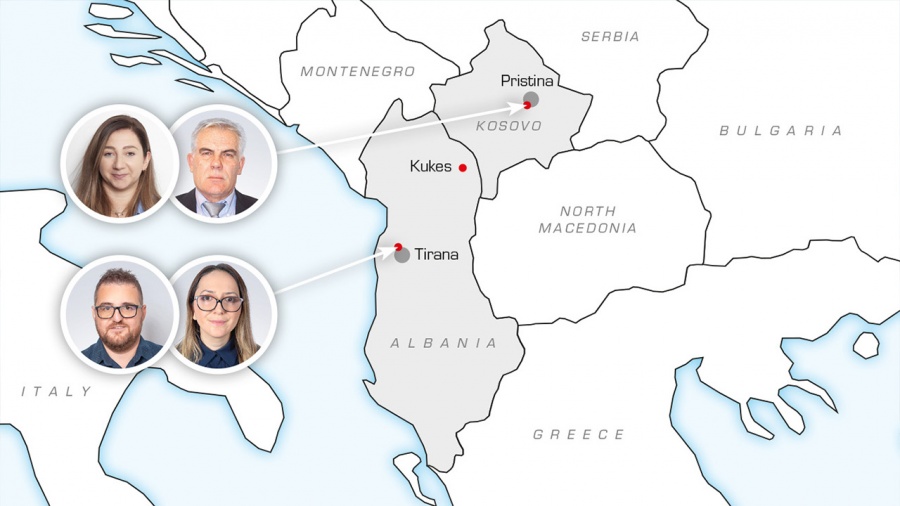
Take us on an airport tour of your two countries. What are some important points our customers should know about when flying to Albania?
One of the key challenges when flying to Tirana in summer is the limited number of parking spaces. Tirana Airport experienced a surge in demand over the past couple of years which often prevents overnight parking. It is therefore advisable to use the airport primarily for passenger drop-off and pick-up and reposition the aircraft to another airport.
While there is a smaller airport, Kukes (LAKU/KFZ), just 30 minutes away by air, it is not appealing for the crew as it is a small village with very little infrastructure. Beside Kukes, other good alternate airports include Pristina, Skopje in North Macedonia (LWSK/SKP), or Podgorica in Montenegro (LYPG/TGD).
Thankfully, Tirana Airport is continuously working on expanding the parking area and creating more parking positions, promising a better experience for our customers in the next year.
Another issue to be aware of is that the extreme heat during the summer months makes it inconvenient to stay on the tarmac for more than 10-15 minutes. It is therefore crucial to arrange transportation in advance so that passengers and crew can be picked up immediately and protected from the heat. We also try to assist the crew with expedited services and have our crew lounge, the largest in Euro Jet’s network, ready for them to use before their flight. It is located airside and easily accessible.
There is also a new airport in the southern part of the country under construction – Vlore International Airport. The location will be perfect for tourists flying private to Albania for a seaside vacation. I look forward to this new project and establishing our presence there.
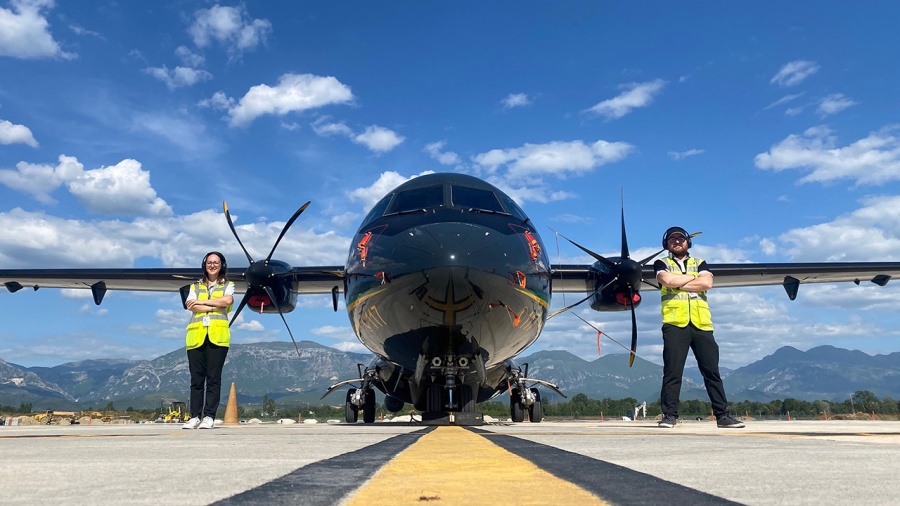
How about the airport in Pristina?
Pristina Airport has recently completed the expansion of its terminal which was necessary to be able to accommodate the anticipated record number of passengers in the upcoming year. The extension of the runway has also been finalized, including improvements to the Instrument Landing System (ILS) and taxiways. This upgrade will enhance the airport’s ability to handle landings in challenging conditions, including dense fog.
We also have a good relations with the Civil Aviation Authority in Pristina. While their working hours must be considered when applying for permit approval during the weekend, they do work with us to find the best solution for our customers, and we have never not received our permit.
One operational challenge that we are facing is to convince our customers to use the airport’s VIP lounge after landing and before take-off. While it comes with an extra charge, it helps to guide our customers through customs and immigration without entering the very busy main terminal. Now that Kosovo has become a part of the Schengen zone, the amount of traffic at Pristina Airport has increased quite a bit. The airport’s VIP lounge is in a separate building and Euro Jet’s office is located conveniently in its vicinity.
As you said, Kosovo’s reputation is a bit complicated and not many people choose it for their vacation or even a short trip. Can you tell us more about your country and introduce some of its must-see places?
One important thing to note about contemporary Kosovo is that it has the youngest population in Europe. Everything is being built around young people and so you will find many cafes and modern restaurants. There is a lot of culture, concerts, and festivals. Dua Lipa, Kosovo’s most famous singer, hosts the popular star-studded Sunny Hill festival in Pristina in summer.
Among the cities worth visiting, Prizren is a beautiful town with rich history and very well-preserved architecture dating back to Ottoman times. Our capital Pristina is a lively city with trendy cafes and great nightlife but also many cultural sites, such as the Newborn Monument, Mother Theresa Square, or the Kosovo Museum. The beautiful mountains surrounding the city are ideal for hiking trips. The Shar Mountains, the Mirusha Waterfalls, or the cliffs of Rugova Gorge are also well worth a trip.
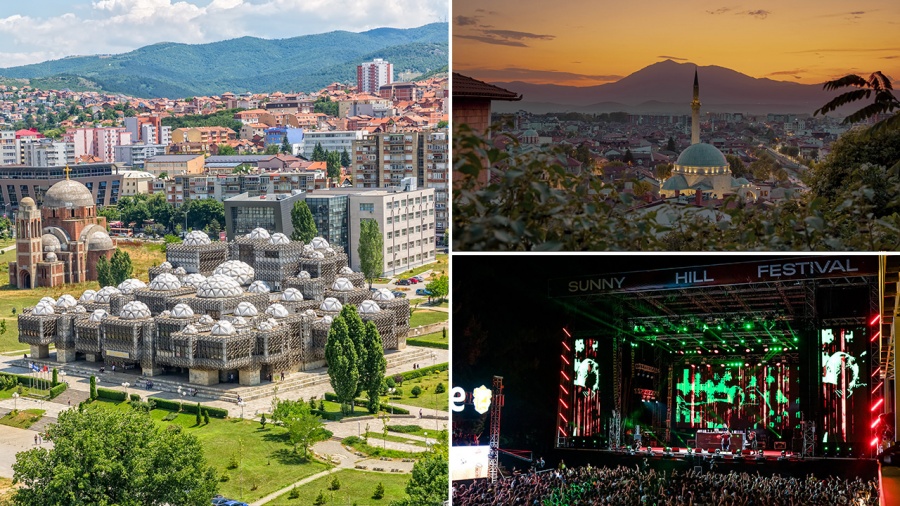
What would you recommend visitors to see in Albania?
Albania is gorgeous, especially its southern region. The sea is crystal clear and there are many areas still accessible only by boat and untouched by mass tourism. The mountains have so many activities to include in your vacation – from lovely hiking trails to paragliding from the mountain tops. Tirana is the perfect mixture of old and ultra-modern architecture. There is a lot of brand-new accommodation and dining options which are outstanding and still very affordable. Most businesses are owned and run by the young and hard-working Albanian generation who are doing a wonderful job.
What is your favorite local dish?
While there might be many traditional dishes that we share with our neighboring countries, one dish that I have not seen anywhere else is Flia. It is a traditional Albanian layered crepe, very thick and sour, baked in a special oven covered with ash. While you can bake it in a home oven as well, nothing compares to a barbecued Flia. We eat it with honey – the combination of sour and sweet tastes makes it absolutely delicious.
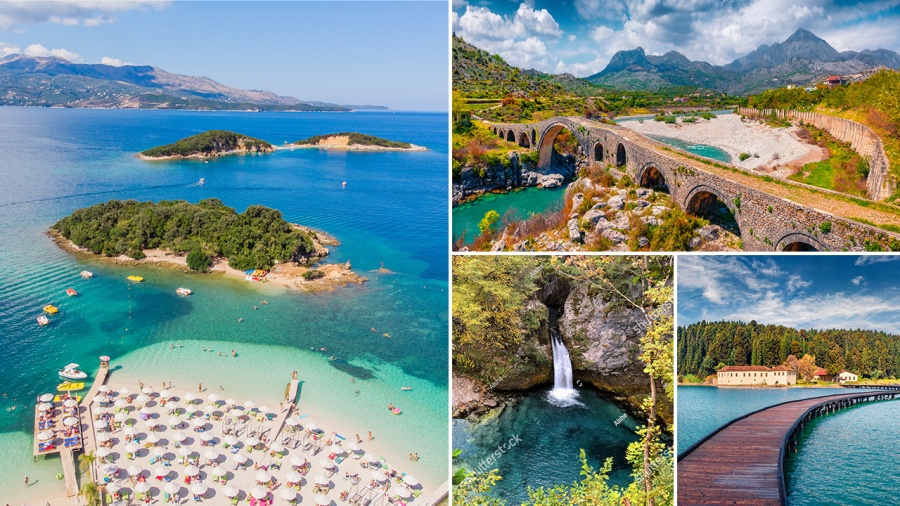
How do you like to spend your time when you are not working at the airport?
I have a daughter so my free time is dedicated to her. We go for walks, visit the zoo, and we also go to Albania a lot to enjoy the beach. And now that Kosovo is a part of the Schengen zone, I cannot wait to explore other countries with her.
Thank you, Behare, for taking time to share all these great insights with us. One final question, what are your plans and goals for the future?
Introducing my country to our customers from the best possible angle and providing great service to everyone who comes to our region is right now a key aspect of my career. It is really important to me to change the perception of both Kosovo and Albania. This starts with our amazing agents and helpful staff at each airport and the excellent support they offer. Aviation has the power of changing people’s perspective about the destination they visit, and my hope is that someone who flies into our region will want to visit again.
Images: Euro Jet Archive, Shutterstock
